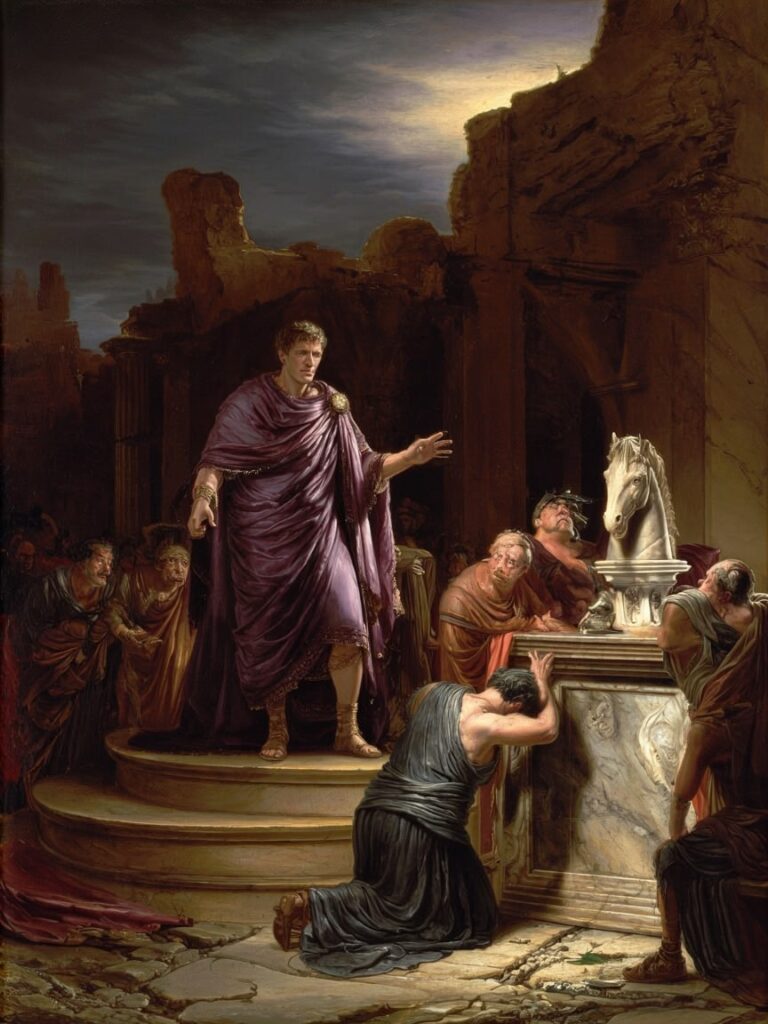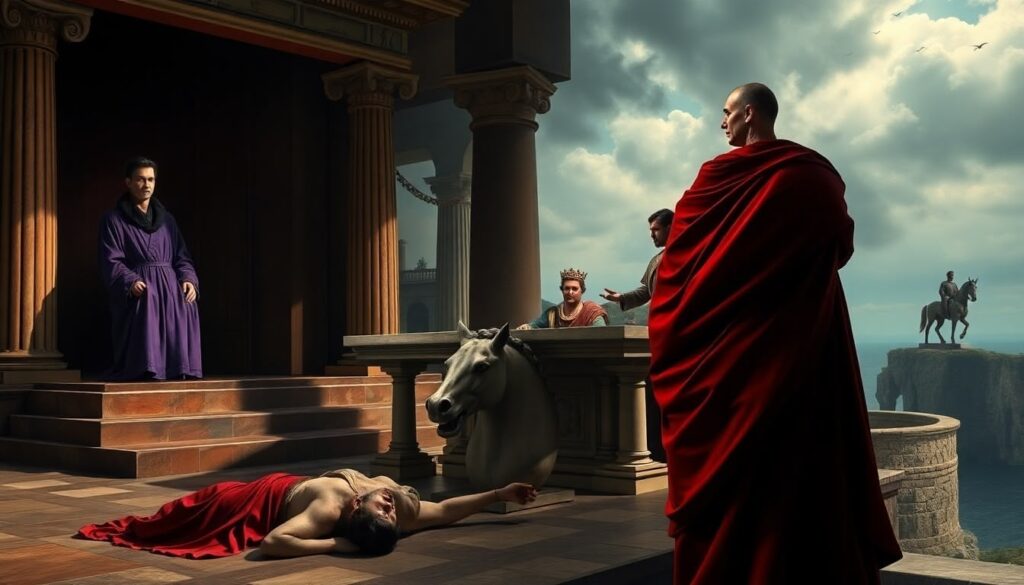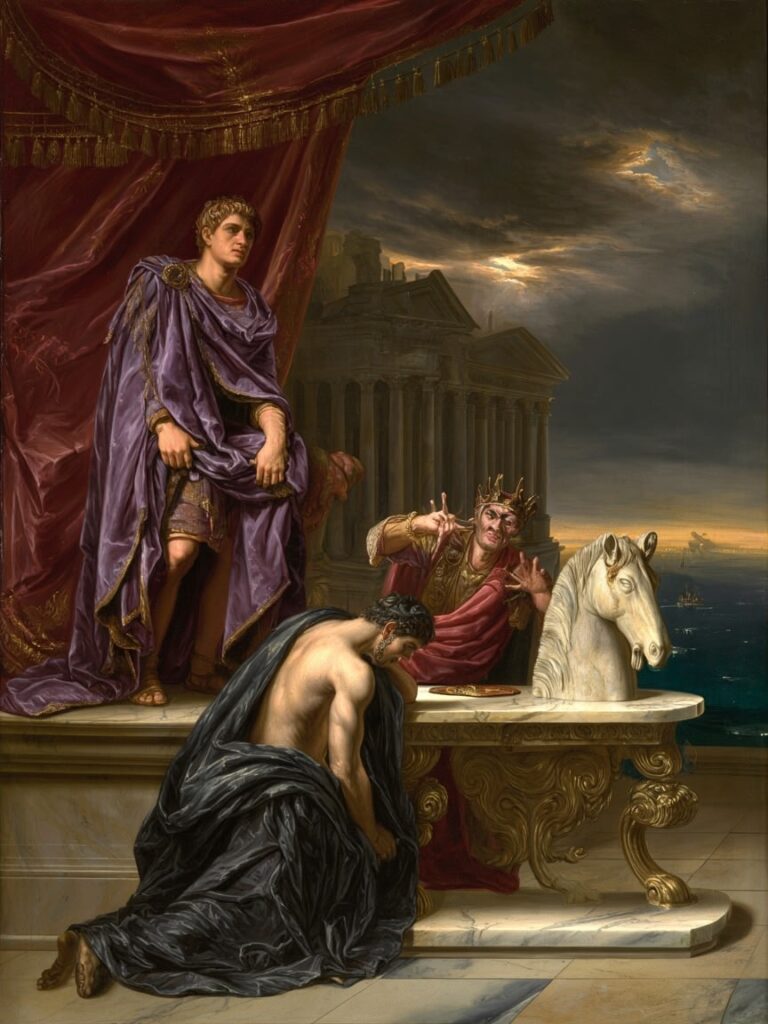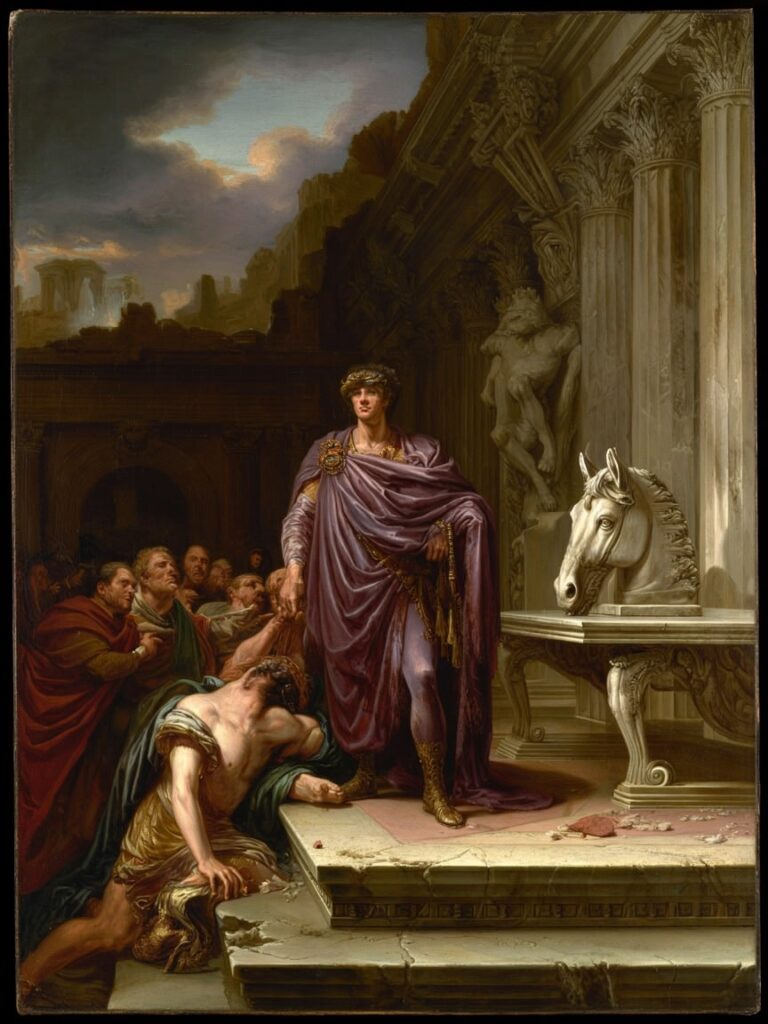Ancient Rome’s scandalous history is filled with intrigue, betrayal, and power struggles that have fascinated both its citizens and historians for centuries. Scandals during this time were not just gossip but significant events that influenced Roman society and politics. The constant quest for power, the conflict between tradition and change, and the ambiguous boundaries of morality and ambition all played out in the scandalous actions of Rome’s most infamous figures. These scandals were interconnected stories that shaped history for generations.
By exploring Ancient Rome’s most infamous scandals, we uncover a story of deception, ambition, and downfall that echoed through positions of power and ordinary life. From emperors to senators, everyone was susceptible to the temptation of scandal and its destructive effects. These tales of victory and disaster offer us a glimpse into a world where reputation held value, loyalty was temporary, and the distinction between hero and villain blurred with each new plot.
Nero: Theatrical Cruelty and Political Strategy
Nero, known for his cruel theatrics and clever political moves, used scandal as a strategic tool to strengthen his power and challenge the established order in Ancient Rome. Here are the key aspects of Nero’s reign that exemplify his approach:
1. Nero’s Manipulation of Scandal for Political Gain
Nero actively cultivated scandals to further his political agenda, using them as a means to eliminate rivals and assert his dominance. The murder of his mother, Agrippina the Younger, stands out as a pivotal event in Nero’s reign, showcasing his willingness to resort to extreme measures to secure his position.
2. Murder of Agrippina the Younger
The assassination of Agrippina the Younger by Nero sent shockwaves through Roman society. By orchestrating her death, Nero not only removed a powerful figure who opposed him but also sent a clear message about the consequences of crossing him. This calculated act of violence underscored Nero’s willingness to commit heinous acts to maintain control.
3. Embrace of Spectacle and Arts to Challenge Elites
Nero’s fondness for grandiose spectacles and artistic pursuits was not merely a reflection of his personal interests but a deliberate strategy to challenge the traditional values upheld by the Roman elite. His extravagant performances in theater, music, and chariot racing were aimed at capturing the public’s imagination and positioning himself as a larger-than-life figure who transcended conventional boundaries.
Through these actions, Nero blurred the lines between entertainment and governance, using scandalous behavior as a means of consolidating power and projecting an image of authority that defied existing norms. His reign serves as a stark reminder of how manipulation of scandal can be both a weapon and a shield for those seeking to wield influence in tumultuous times in history.
Moreover, this intricate interplay between theatricality and political strategy is explored in depth in this academic paper, shedding light on how such tactics were not just limited to Nero but have been employed throughout history by various leaders.

Caligula: Paranoia and Tyrannical Excesses
Caligula’s reign is often remembered for its extreme volatility and bizarre displays of autocracy. His erratic behavior soon veered into self-proclaimed divinity, a move that shocked Roman society. Declaring himself a living god, Caligula demanded worship and insisted on being addressed in divine terms. This claim to godhood was not mere eccentricity but a political statement that challenged the traditional power structures of Rome and alienated many.
Paranoia and Distrust
Paranoia became a defining feature of Caligula’s rule. Distrust toward the Senate and Rome’s elite grew as he suspected conspiracies at every turn. Numerous senators were executed or exiled on fabricated charges, creating an atmosphere of fear and suspicion. One notorious incident involved the arbitrary execution of several prominent senators during a lavish dinner party, illustrating how quickly favor could turn into fatal distrust. Caligula’s bizarre acts, such as appointing his horse Incitatus consul, symbolized his contempt for the Senate and displayed his unpredictable nature.
The Downfall of Caligula
The alienation of Rome’s ruling class under Caligula’s paranoia set the stage for his violent end. The Praetorian Guard, initially loyal protectors of the emperor, became disillusioned with his cruelty and erratic commands. On January 24, 41 CE, they assassinated Caligula in a conspiracy led by officers within their ranks. His wife and daughter were also killed in the purge that followed. This assassination marked one of the earliest successful coups against a Roman emperor, revealing how scandalous excesses can directly undermine imperial stability.
Caligula’s brief but turbulent reign remains a stark example of how paranoia combined with unchecked power can devastate political relationships and destabilize governance structures within Ancient Rome.

Tiberius Caesar: Scandalous Private Life and Political Manipulation
Tiberius Caesar’s reign was marked by scandalous events that tarnished his legacy in Ancient Rome.
Poisoning Allegations
Accusations swirled around his involvement in the poisoning of potential heirs to ensure his grasp on power. These allegations portrayed him as a ruthless and conniving ruler willing to eliminate threats to his rule through deceitful means.
Retreat to Capri
Additionally, Tiberius’ retreat to the island of Capri revealed a darker side to his character. Infamous tales emerged of his indulgence in depravity and debauchery, painting a picture of an emperor consumed by hedonism and excess. Stories of sexual deviancy and sadistic acts circulated, further damaging his reputation among the Roman populace.
Influence of Sejanus
Furthermore, the influence of key figures like Sejanus cannot be ignored when examining Tiberius’ political decisions and actions. Sejanus, the ambitious Praetorian prefect, wielded significant power and manipulated events to consolidate his own standing while influencing Tiberius towards more ruthless governance strategies. This collaboration between ruler and advisor contributed to the erosion of trust within the Roman political elite and fueled further instability during Tiberius’ rule.
The intertwining narratives of scandal, manipulation, and moral decay surrounding Tiberius Caesar shed light on the complex dynamics at play within the Roman Empire during this tumultuous period.

Societal Impact of Ancient Rome’s Scandals
The scandals that rocked Ancient Rome had far-reaching effects beyond the mere sensationalism of the events themselves. These scandals were not isolated incidents but rather reflections of deeper societal tensions and power dynamics within Roman society.
1. Reflection on Authority and Tradition
The scandals involving emperors such as Nero, Caligula, and Tiberius challenged the traditional values of Roman society. They blurred the lines between imperial authority and moral conduct, leading to a reevaluation of what it meant to hold power in Rome. The public exposure of such scandalous behavior forced Romans to confront the contradiction between the idealized image of their rulers and the harsh realities of their actions.
2. Challenges to Established Norms
The scandalous acts of these emperors posed significant challenges to the established norms around power and morality in Ancient Rome. The unchecked depravity and cruelty displayed by Nero, Caligula, and Tiberius raised questions about the limits of imperial authority and the responsibilities that came with wielding such power. These scandals forced Romans to grapple with the implications of having leaders who acted with impunity and without regard for societal norms.
3. Lasting Impressions on History
The impact of these scandalous events reverberated throughout Roman history and cultural memory. The stories of Nero’s tyranny, Caligula’s excesses, and Tiberius’ depravity became cautionary tales that shaped how subsequent generations viewed leadership, governance, and morality in Rome. These scandals left an indelible mark on Roman society, serving as reminders of the dangers inherent in unchecked power and moral decay.

Conclusion
The legacy of scandals from Ancient Rome’s most notorious emperors continues to reverberate through history, underscoring the intricate interplay between power and moral decay. These scandalous events serve as cautionary tales, highlighting the dangers of unchecked authority and the fragility of societal norms.
The historical significance of these scandals transcends time, offering valuable insights into the complexities of governance and the enduring impact of individual actions on collective memory. The Ancient Rome’s Most Notorious Scandals stand as a stark reminder of the far-reaching consequences of hubris and corruption in shaping societies past and present.

